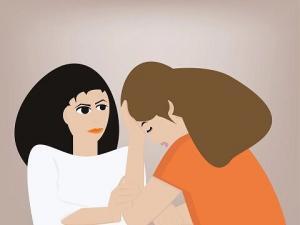
Psychiatrists and their staff regularly struggle to recover payments from patients. People do not always fulfill their promise of making installments on time, forcing the in-house staff of your medical practice to make repeated calls and mailing invoices to these people. Several of these unpaid medical bills appear unrecoverable as time passes by, leaving employees completely frustrated and helpless. This is where a medical collections agency comes for the rescue and attempts to recover past-due bills in an amicable and legally permitted manner.
| If you are looking for a cost-effective debt collection agency: Contact us |
Accounts receivable problem has plagued the psychiatric industry for a long time now, and in-house staff often lament on the common issues they have to grapple with – with no clear answer or solution in sight. Below are some of these common issues.
- Denial of Insurance Claims
One of the most common billing issues is denied insurance claims. Psychiatric facilities are often not cognizant of the fact that an inadequate denial management process can cause the loss of a significant portion of potential profits. While the report of the Medical Group Management Association (MGMA), states that every healthcare firm should have a denial rate of 4%, some psychiatric firms’ rates soar to 10% or more.
- Lack of accounts receivable management
Improper accounts receivable management in psychiatric practices can lead the firm towards loss that includes bad debts. Psychiatric practices can mitigate this by properly reconciling their bank statements to verify that they have not missed an entry and that all the transactions are accurate. Also the receivables staff must precisely review every claim form before submission to make certain it meets the guidelines and try to keep a follow up of denied claims.
- Unnecessary Write-offs
Most write-offs are related to denied claims and can eventually affect the balance sheet if they occur regularly. Rather than automatically writing off denials, the accounts receivable staff should take the time to review each claim to ensure that all payment options have been exhausted. Account receivable staff can also work with patients to reduce their balance. A review of each overdue patient account could significantly improve receivables.
- Restricted Mode of Payment
Psychiatric facilities with a sole mode of the payment run the risk of no-or-late payments. A restricted mode of payment can pose an obstacle when collecting payment. Hence, psychiatric facilities should keep various modes of payments such as accepting payments to maintain smooth cash flow.
Hiring a Collection Agency
As previously stated, inadequate accounts receivable management processes are significant contributors to the financial loss of psychiatric practices. Unfortunately, this is one of the greatest challenges psychiatric firms face. One of the simplest methods available to counter this is to hire a professional collecting agency.
Psychiatric facilities that are unable and unequipped to monitor and manage their accounts receivable can hire a professional collection agency to consult and provide aid in managing their accounts receivables. A collection agency work to reduce the time a firm receives payment for an outstanding claim by tracking these claims and researching the reason why they haven’t been paid yet, thus ensuring that the psychiatric facility receives payment from every claim. With the help of a collection agency, payment can occur within weeks. Besides, a professional collection agency has an accounts receivable management protocol in place. This means that they can help a psychiatric facility increase its client’s collections, minimize reimbursement issues, and speed up their cash flow. These agencies also provide follow up services to ensure that claims are paid promptly and that any issues hindering immediate payment are resolved.
The Bottom Line
A good accounts receivable process can transform the cash flow of any psychiatric practice from negative to positive. A seamless billing and account receivable process commences with analyzing the current account receivables methods and modify them where needed or hire a collection agency to ensure debts and outstanding claims get paid.